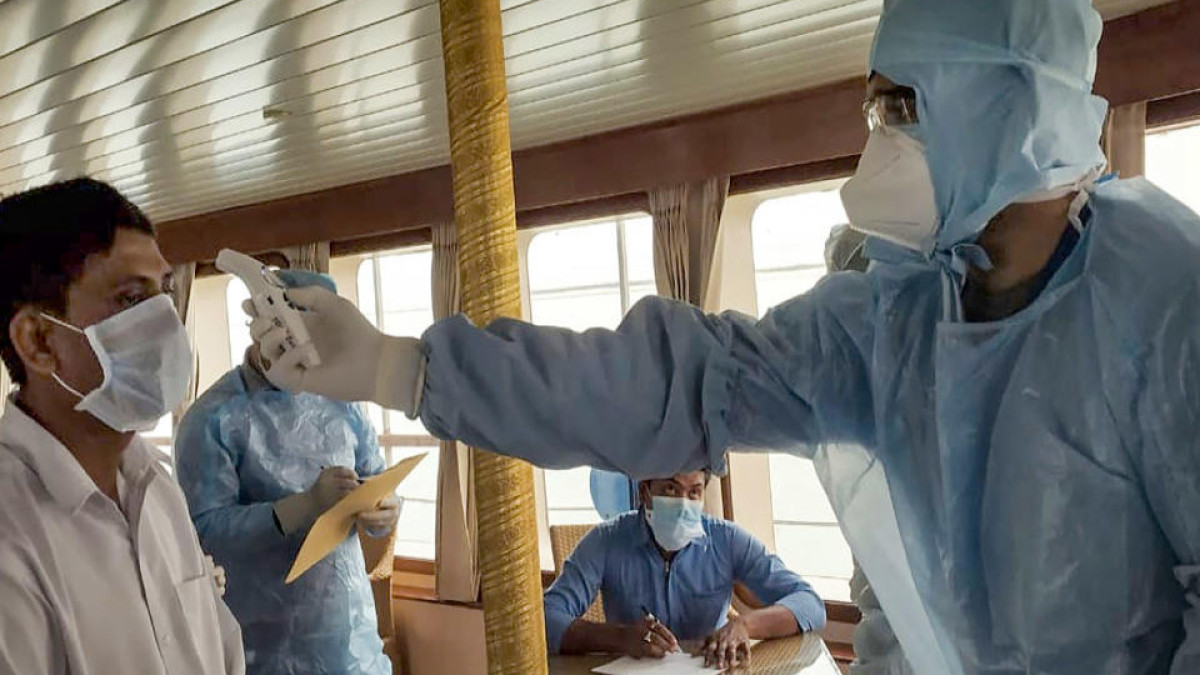COVID cases are down. Unfortunately, stomach flu outbreaks are up.
“In the U.S., we track gastroenteritis through the CDC’s U.S. Influenza Surveillance Program Week 3 report and its companion Weekly Epidemiology Report.” -According to Digging Deeper by Ina M. Pongracic.
By October 27 this year, “209 confirmed influenza-associated pediatric deaths had been reported to the CDC’s weekly surveillance reports.” Of the 209 deaths, 166 (74.5%) have been reported for the week ending October 20. Thirty-six (20.4%) reports have been for October 27, bringing the total to 167 reports for both weeks ending October 20 and27. “”
The main flu strain circulating in the U.S. this year, H3N2, is known to be more virulent than other influenza strains. It’s also known sometimes to cause gastrointestinal disease in young children. At least, that’s what the CDC wants you to think.
Outbreaks of norovirus, the bug responsible for the dreaded stomach flu, have been on the rise since January, according to the Centers for Disease Control and Prevention.-
The most significant increase in norovirus cases, according to the CDC, occurred during the first half of 2005, with a 1,220 percent increase in reported cases over 2000.
In 2004, 1,403 human illnesses were reported during theBefore the CDC’s week one reports. Outbreaks this year have not been as severe, however. In 2003, when the number of instances was three times higher than this year, there were 12 deaths. So far this year, there have been only two deaths. –
The increased reporting by U.S. states is due to advances in technology. Before the occurrence Before the CDC’s digital reporting system was implemented, medical and public health departments relied on reports from doctors and hospitals. Health departments do not have a complete picture of how diseases occurrmethod. –
The CDC is urging all states to send in case numbers when they see an uptick in infection levels or clusters of illness.
With all the media attention on norovirus this year, it’s tempting to label it with a catchy phrase and then forget about it. While it would be easy to blame the flu for all gastrointestinal problems, that wouldn’t be accurate. It would also make following the pandemic more difficult.
The flu isn’t a one-size-fits-all disease.-
“Influenza activity is high throughout the country, but fortunately has not yet reached epidemic levels.” – Dr. Thomas Frieden, Director of the CDC –
The truth is that URTIs are some of the most common conditions we see on a typical day. We’re temp to call it “the stomach flu” because it has similar symptoms. However, our bodies respond to viruses differently than they do to bacteria. One virus can give you the flu and cause your throat to swell shut; the next virus can make you just as sick but in a very different way. The same thing can happen with bacteria. Don’t take antibiotics if you think you may have a gastrointestinal illness caused by a virus or bacteria. Your doctor will be able to make an accurate diagnosis.-
See your doctor if you experience the following symptoms:
– Diarrhea (loose stool) or vomiting (throwing up)
– Abdominal cramps that spread to other areas of the body.
– Body aches and headaches, which can come on suddenly.
– Nausea, fever and chills.
– Burning when you poop or urinate and a strong urge to do it.
If you experience these symptoms and don’t go away within a day or two of their onset, seek medical attention immediately. Take antibiotics if your doctor prescribes them, but don’t take them prophylactically (to prevent infection).
Dr. Richard Besser, Chief of the CDC’s National Center for Infectious Diseases, said that people could underestimate the importance of washing their hands and that people living in small apartment buildings should beware of using public bathrooms.
If you wash your hands after using the bathroom, Dr. Besser recommends avoiding shaking hands with others.-
“In the urban environment, people are using public bathrooms. There are a lot of communal showers and bathtubs that people use. If you have bacteria on your hands, it’s tough to clean them off.” – Dr. Richard Besser.
Washing thoroughly with a non-antibacterial soap when you get home from work will help prevent any nasty germs from getting into your apartment or workplace. You can also use a disinfectant like Lysol to clean your counters and bathroom faucets, but be careful not to spray near the ceiling or onto lights, furniture or area rugs.
Use an approved disinfectant on any furniture and surfaces in the common areas of your apartment. As a precautionary measure, wipe down light switches and outlets with an approved disinfectant.
PRECAUTIONS-
The best way to prevent norovirus, according to him, is to practice good, old-fashioned hand hygiene. That is, thoroughly washing your hands with soap and water for 20 seconds or so after using the restroom and before cooking.
He add that the best cleaning method for surfaces is a bleach solution that has been dilut.
He continued, “When it comes to decontaminating affected areas, a diluted bleach solution is best for cleaning surfaces.
Conclusion:
For those who become infected with norovirus, wash your hands frequently and thoroughly. Also, avoid shaking hands and using the same utensils or towels as others when preparing food. “It’s important to remember that while the norovirus has been around for a long time. It doesn’t mean we’ve had experience living in close quarters with it. It’s important to clean our homes and workplaces to help prevent norovirus in the first place, and it’s important to take the necessary precautions such as hand washing and avoiding contact with sick people,” Dr. Besser said.-
Results from the National Center for Health Statistics show that the number of norovirus cases has increased. In two weeks, it went from 12 to 14.
Fecal-oral transmission is accomplish through close contact with someone infect or when you open your mouth after touching or licking surfaces contaminated with feces – like a T.V. remote. The best way to avoid being infect with this illness is to wash your hands often. Follow these guidelines:
Before preparing food and after using the bathroom.

